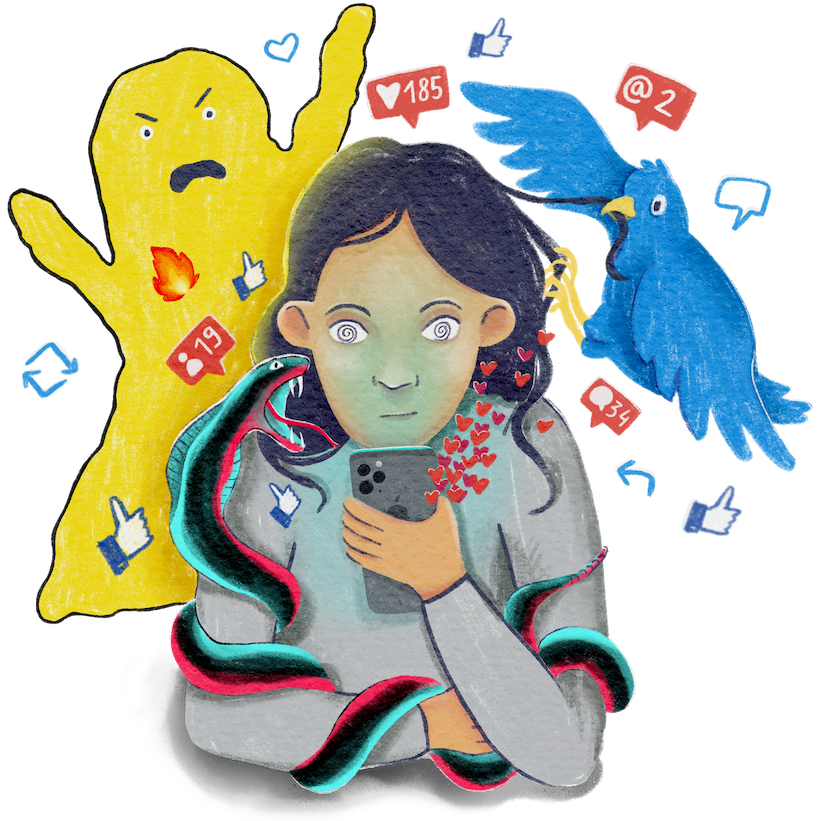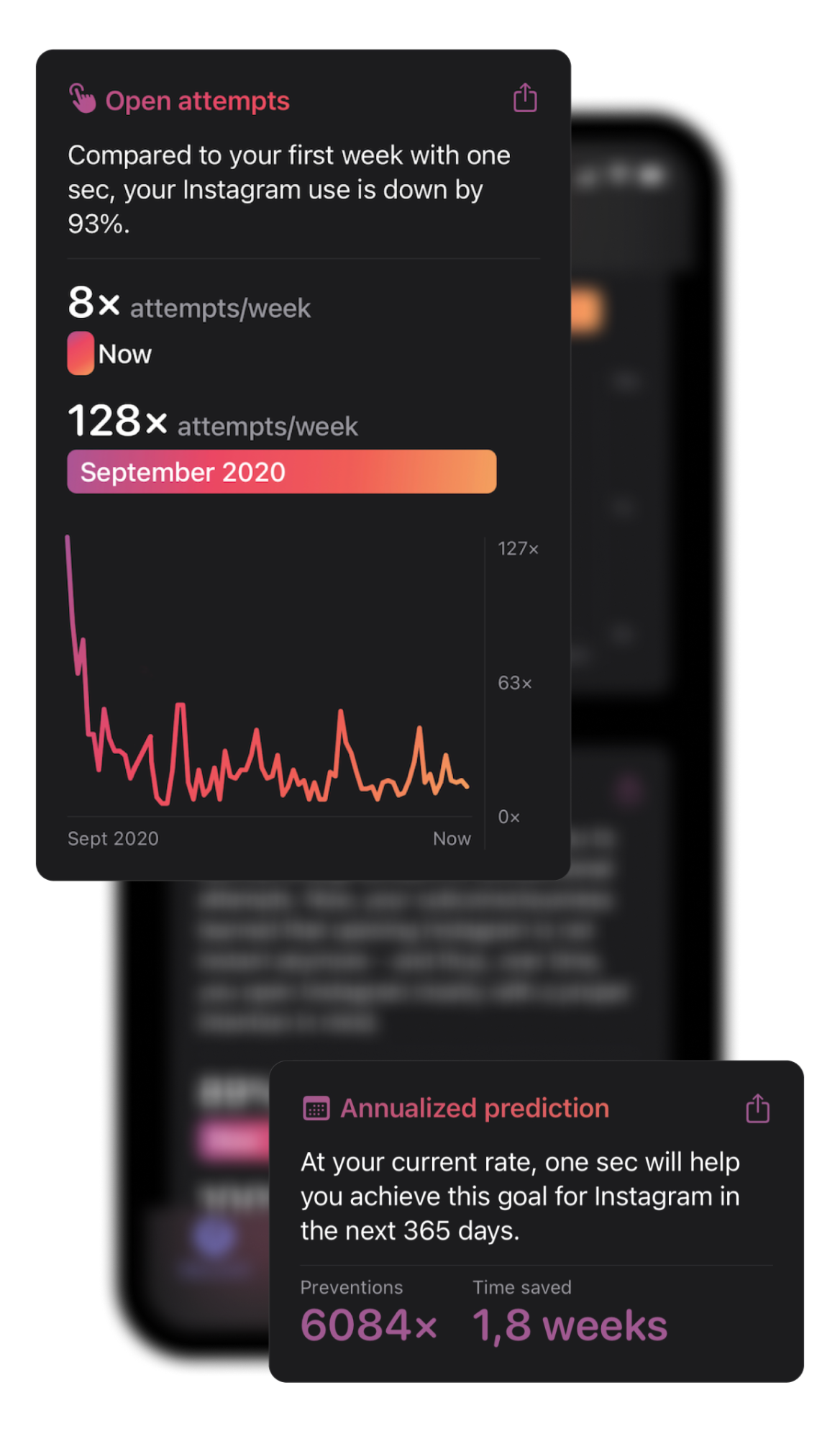
one sec for schools
Make your students resistant to social media algorithms
My new app “one sec” forces its users to take a deep breath whenever they open social media apps.
Incredible focus and mental health gains starting at 0.19€ per student per month:
one sec reduces social media usage by 57%.1
On average, every student wastes 16h per week on social media apps.2
That’s one whole month of time per year. And the effects on mental health are tremendous.
Imagine, if students spent that time more intentional: taking breaks between classes that actually help to reset their brain (as suggested by latest Microsoft research), lose their urge to open social media all the time without proper reason, and ultimately get less stressed, and a more resilient mental health – resulting in a healthier learning environment.

